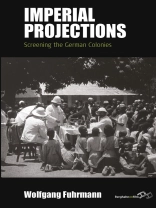The beginning of filmmaking in the German colonies coincided with colonialism itself coming to a standstill. Scandals and economic stagnation in the colonies demanded a new and positive image of their value for Germany. By promoting business and establishing a new genre within the fast growing film industry, films of the colonies were welcomed by organizations such as the Deutsche Kolonialgesellschaft (German Colonial Society). The films triggered patriotic feelings but also addressed the audience as travelers, explorers, wildlife protectionists, and participants in unique cultural events. This book is the first in-depth analysis of colonial filmmaking in the Wilhelmine Era.
Table des matières
List of Illustrations
Acknowledgements
Abbreviations
Introduction
PART I: THE BEGINNING OF COLONIAL FILM CULTURE IN IMPERIAL GERMANY
Chapter 1. From the Variety Theatre to the German Colonial Society
Chapter 2. Carl Müller: A Colonial Film Maker
Chapter 3. The DKG’s Film Shows: The Colonies in Motion
PART II: ADDRESSING THE MASSES
Chapter 4. The ‘Hottentot Election’ of 1907
Chapter 5. The DKG’s Kinematographenkampagne
Chapter 6. Rise and Fall of the Kinemtographenkampagne
PART III: ETHNOGRAPHIC FILMMAKING IN THE COLONIES
Chapter 7. Karl Weule in German East Africa
Chapter 8. The Expedition in Context: Modern German Ethnography
Chapter 9. Filming in the Colonies: Training and Improvisation
PART IV: TOURISM, ENTERTAINMENT, AND COLONIAL IDEOLOGY
Chapter 10. Colonial Films in Public Cinema
Chapter 11. The Colonial Travelogue
Chapter 12. Colonial Films in Transition: Robert Schumann’s Comeback
PART V: COLONIAL FILM PROPAGANDA DURING THE FIRST WORLD WAR
Chapter 13. Setting Up Colonial War Propaganda
Chapter 14. The Deutsche Kolonial-Filmgesellschaft (DEUKO)
Conclusion
Filmography
Bibliography
Index
A propos de l’auteur
Wolfgang Fuhrmann teaches film at the University of Zurich’s Department of Film Studies. From 2005–2008 he was Director of the DFG Research Project “Film and Ethnography in Germany 1900–1930, ” and has held teaching positions in Germany, Switzerland, and the Americas. He has published on German colonial cinema, early ethnographic filmmaking, historical film reception, and transnational film history.












